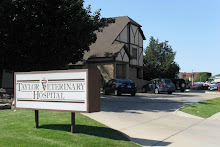Salmonella bacteria are a common cause of foodborne illness, but can also be spread to people by direct contact with animals that carry the bacteria, such as reptiles and birds. Children can be at particular risk from these birds, since they are less likely to wash their hands and have more frequent hand-to-mouth contact than adults. Outbreaks of Salmonella infections have been linked to exposure to baby chicks and ducklings, and many of these outbreaks have occurred in the spring, around Easter.
Here are some important tips for parents and child care providers to reduce the exposure of young children to Salmonella from chicks and ducklings.
· Do not let children younger than five years of age handle baby chicks, other young birds, or items contaminated by the poultry.
· Wash your hands thoroughly after handling poultry or their droppings. Pacifiers, toys, bottles or other objects should not touch the baby birds or their cages. If these objects become contaminated, wash them with warm soapy water.
· Do not eat or drink around poultry or their living areas.
· Keep the bird area separate from areas where food and drink are prepared or consumed. Do not allow chicks or ducklings on table surfaces or places where food will be prepared or eaten. Do not wash the birds’ food and water dishes in the kitchen sink.
For more information, visit http://www.cdc.gov/healthypets/easter_chicks.htm
Taken from Iowa Department of Public Health - EPI Update


No comments:
Post a Comment